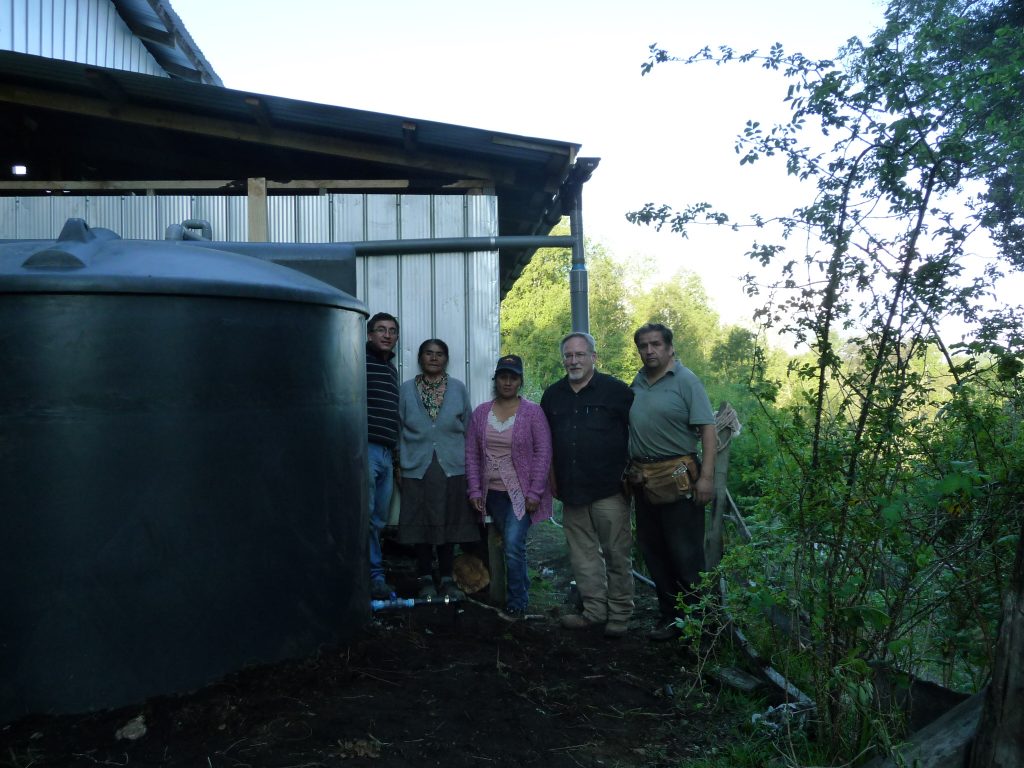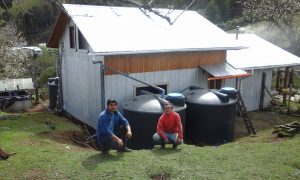

About every summer, we noticed the same thing: the springs our Mapuche friends depend on for all household water needs dry up. In the past, periodic rain in the summer was normal, but not anymore. It is the same situation in all of Chile. Climate change is surely a factor, as well as the existence of extensive pine and eucalyptus plantations owned by large forestry companies.
Most rural households now depend on weekly deliveries of 1,000 liters of water in the summer and in many areas all year. This, while 80% of the rainwater that falls goes eventually to the sea, without capture or retention in tanks, ponds, or reservoirs, or soaked into the soil with swales.
We knew rainwater harvesting systems worked in Texas, and we kept asking year after year, “Why don’t you use rainwater harvesting?” And they kept saying, “Why don’t you show us how?” So, we received a grant from One Great Hour of Sharing to do just that.
We invited a friend from Texas, Chuck Kinzler, an amazing engineer and craftsman, to come and create for us a prototype system that we could replicate.
Earthquake relief work and home assignment set us back for a while. Then when we returned in March of 2015 we saw the effects of a long-term drought. By mid- to late summer, crops were lost, animals were dying. Ever since, it is normal to see trucks carrying water on rural roads around Temuco and Panguipulli where Dwight works.
We install simple rainwater harvesting systems that will supply water in the summer months to the gardens, animals, and for non-potable household uses (washing machine, shower, and bathroom).
The purpose is to demonstrate a viable solution that is easily replicable and adaptable, while solving acute water problems.
The testimony of Flor, the woman who leads the yarn project in Repocura, is the same story we hear everywhere: “I wasn’t even going to plant my garden this year, because there’s no water, but now I can.”
Dwight’s partner in the design and installation of the systems is Raul Olivares. Raul has a call to be a pastor, but will always need to be bi-vocational. Currently he supports himself with welding and small building jobs, and studies in the Theological Institute part-time. Designing and installing rainwater harvesting systems may become an income-generator for him as the idea gains wider acceptance in Chile.
To date, we have installed 17 systems in 10 communities, mostly for Mapuche families. As word of this work has spread, we were invited to install systems in three rural Mapuche schools, and one demonstration system for the Municipality of Temuco. In the Panguipulli area, we are starting to see small systems like ours being installed by the local government agencies.